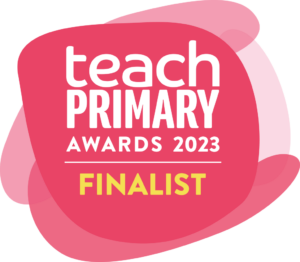Recent news: In July 2022 the High Court ruled that the current religious education curriculum and provisions for collective worship in Northern Ireland are incompatible with the Human Rights Act as they are not approached in an ‘objective, critical and pluralistic manner’.
We believe that religious education should be inclusive of both religious and non-religious worldviews in a way that encourages respect for people with different beliefs, and treats all young people equally regardless of their background. Our Understanding Humanism resources are designed to help you deliver an inclusive and pluralistic religious education that supports the rights of all young people.
 Today 27% of people in Northern Ireland describe themselves as non-religious. That’s a number that has risen significantly in the last 20 years. Humanism is a non-religious approach to life followed by around half of non-religious people. Humanists believe the world is a natural place with no supernatural side, and that we can live good, happy, and meaningful lives on the basis of reason and empathy.
Today 27% of people in Northern Ireland describe themselves as non-religious. That’s a number that has risen significantly in the last 20 years. Humanism is a non-religious approach to life followed by around half of non-religious people. Humanists believe the world is a natural place with no supernatural side, and that we can live good, happy, and meaningful lives on the basis of reason and empathy.
Teaching about humanism alongside teaching about religions can support young people in all schools to better understand the contemporary landscape of religion and belief, and can contribute towards better relationships between people of different beliefs.
If you teach in an integrated school, then the NICIE Statement of Principles says in its Declaration of Ethos:
The integrated school provides a learning environment where children and young people from Catholic and Protestant backgrounds, as well as those of other faiths and none, can learn with, from and about each other.
Principle (ii) specifically says:
Pupils will be introduced to the ideas, beliefs and practices of the major world religions and humanist philosophies, in a manner appropriate to their age and ability, and in line with the NI curriculum.
However, the benefits of teaching about humanism are by no means restricted to those students in integrated schools.
Click here for more about the wider case for including humanism in RE.
 Our free education resources can support your teaching about humanism for young people aged 5 to 18. We’ve divided the humanist approach to life into a number of core areas of knowledge to make it easy for students to digest and understand. For more about how to use our resources, check out our ‘How to use…’ guide.
Our free education resources can support your teaching about humanism for young people aged 5 to 18. We’ve divided the humanist approach to life into a number of core areas of knowledge to make it easy for students to digest and understand. For more about how to use our resources, check out our ‘How to use…’ guide.
Teachers can book a free visit from one of our trained school speakers who can talk to students about what it means to have a humanist approach to life. The focus is always on raising understanding and providing a safe environment in which students can ask questions rather than making any attempt to change students’ beliefs.
We offer teacher training to support teachers with their subject knowledge about humanism and provide practical ideas for the classroom. Individuals can sign up for our regular CPD webinars, or whole schools and teacher training institutions can get in touch to request something bespoke to their needs.
Our two free online courses on humanism can also support teachers with their subject knowledge.
You can find high-quality, inclusive assemblies on our Assemblies for All website, designed to provide free access to educational, enjoyable assemblies appropriate for young people from all backgrounds. Unlike many other websites, which offer assemblies frequently of a faith-based Christian nature, Assemblies for All prioritises assemblies that are not acts of collective worship and do not seek to promote one particular religion or belief.
If you use our resources, let us know what you think about them. Send us your feedback and be in with a chance of receiving a free bundle of books about humanism.
Humanists UK
39 Moreland Street
London EC1V 8BB
education@humanists.uk
@HumanismEdu

© Humanists UK 2024. Registered Charity No. 285987
humanists.uk | Privacy
Illustrations by Hyebin Lee